After securing agreements from the Thai government to cooperate in
the development of the Dawei deep-sea port, Burmese President Thein Sein
on Monday met with top Thai business executives.
 |
| Burmese
President Thein Sein applauds as he listens to a presentation during
his visit to the Regional Investment and Economic Center at the Laem
Chabang deep-sea port south of Bangkok during his three-day trip to
Thailand, which ends on Tuesday. Photo: AFP |
During a meeting with PTT, Thailand’s state-owned energy company, he won
a pledge that the company would return some of its excess gas supply to
Burma, in a bid to help resolve the country’s chronic power supply
shortfall.
Burma is unable to supply enough electricity to meet
the country’s needs, through a combination of lack of gas to run
existing generators and a lack of power plants.
Thein Sein met
with executives from PTT, Siam Cement Group and Charoen Pokphand Foods
(CPF) and other companies to discuss business ties and cooperation.
Pailin
Chuchottaworn, the CEO of PTT, Thailand’s state-owned energy company,
said it had won many contracts from Burma over the past 20 years, and it
“will allocate [a] gas supply to solve Myanmar's electricity problem in
the short term.”
“We regard Myanmar as our second half after 20
years of expansion there. Myanmar has always honoured the contracts,
even if it has a power shortage problem.”
PTT Exploration and
Production president and chief executive Tevin Vongvanich said the gas
would total 40 million cubic feet per day from the Yadana well, but it
would not affect PTT’s gas supply because the company would secure more
gas concessions.
According to reports in local media, Adirek
Sripratak, president and CEO of Charoen Pokphand Foods, said the company
planned to invest $550 million in Burma over the next three years. The
investments would cover rice mills, seed, animal feed, cattle farms, and
aquatic animals.
Siam Cement Group, the giant construction
material manufacturer, said it would soon set up a $314 million cement
production plant in Burma to support faster infrastructure development.
Santi
Villasakdanont, managing director to Saha Pathana Inter Holding Plc,
said the firm planned to spend about $62 million to set up an industrial
estate in Rangoon or a nearby province.
However, the centerpiece
of Thein Sein’s trip remained the agreement with Prime Minister
Yingluck Shinawatra to cooperate in pushing ahead on the Dawei deep-sea
port project, which includes securing long-term financing for the
project.
Ital-Thai, the parent company of the project's main
developer, has had trouble coming up with development funds from
governments or private organizations. MaxMyanmar, a Burmese conglomerate
and a local partner, said in June that it would withdraw its stake.
Work
on the project has slowed in recent months, but Thailand last week
recommitted itself to provide initial infrastructure financing to get
the project moving again with a pledge of up to $3 billion from PTT Pcl
of Thailand.
The Dawei project includes plans for a 250-square
kilometre industrial area with a steel mill, petrochemical plant and oil
refinery, plus a railroad and highway linkage system to Thailand’s
seaports and industrial districts, and on to Laos, Cambodia and Vietnam.
It is estimated to cost up to $60 billion.
The two countries
also signed Memorandums of Understanding agreeing to provide assistance
in areas including security, infrastructure and logistics. Thailand will
also provide guidance prior to 2014 when Burma becomes the chair of the
Association of Southeast Asian Countries.
Thein Sein and
Yingluck also agreed to open three new border crossing points near
Chiang Mai, Mae Hong Son and Kanchanaburi, in addition to the three
existing official checkpoints.
Thein Sein was granted an audience
with HRH Princess Maha Chakri Sirindhorn at Chitralada Palace before
attending a dinner reception on Monday hosted by Yingluck at Government
House.
On Sunday, Thein Sein inspected the Laem Chabang deep-sea
port on Thailand's Gulf Coast, which will be connected by road to Dawei,
cutting out the longer sea route around the Malaysian peninsula.
Sean Turnell of Australia's Macquarie University told
Voice of America in an article published on Tuesday that Thailand's economy stands to benefit from the project more than Burma's.
“All
the advantages go to Thailand rather than to Burma. Because really this
is about getting quick access to Bangkok and some of the manufacturing
outlets of Thailand and natural resources and all sort of things into
the country. It's on a tiny arm of Burma,” said Turnell. “I mean it
really involves little in the way of Burma's industrial capacity, for
instance, or access to Burmese markets.”
Meanwhile, the Burmese
Rohingya Association of Thailand staged a protest on Monday outside the
venue of Thein Sein’s meeting with Yingluck. Widespread sectarian
violence in Burma’s western Arakan State has claimed 78 lives and caused
many international organizations to criticize Burma’s handling of the
ethnic Rohingya issue. Thein Sein last week asked the UN refugee
commissioner to take over responsibility for the Rohingyas, who are
denied citizenship in Burma.
Benjamin Zawacki of Amnesty International told
VOA that the overall human rights situation in Burma has gotten worse in the past year, despite the landmark political reforms.
“President
Thein Sein simply asserts that Rohingyas are not citizens and then,
regardless of their actual status, he's currently allowing security
forces under the rubric of the state of emergency to commit violations
against that ethnic minority,” he said.
Thein Sein will meet
leaders of the Burmese community in Thailand during a visit to his
country's embassy on Tuesday, prior to returning home.
http://mizzima.com/business/7586-thailands-ptt-to-aid-burmas-energy-shortfall.html

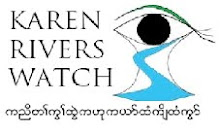

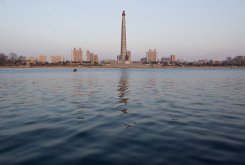 A
general view shows the Juche Tower in Pyongyang in April 2012. North
Korea said Sunday it was being lashed by severe thunderstorms that could
cause major damage, just days after flooding that killed scores and
left tens of thousands homeless.
A
general view shows the Juche Tower in Pyongyang in April 2012. North
Korea said Sunday it was being lashed by severe thunderstorms that could
cause major damage, just days after flooding that killed scores and
left tens of thousands homeless. 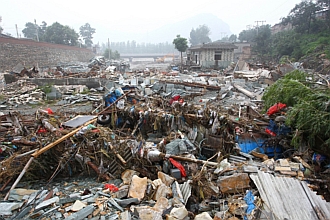 The devasted area in Beijing on July 26, 2012, after the worst
rainstorms in six decades pounded the capital city on July 21 leaving
the metropolis flooded and tens of thousands of people stranded in
surging waters. (AFP Photo)
The devasted area in Beijing on July 26, 2012, after the worst
rainstorms in six decades pounded the capital city on July 21 leaving
the metropolis flooded and tens of thousands of people stranded in
surging waters. (AFP Photo)


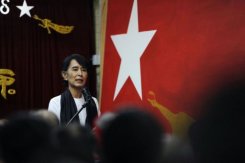










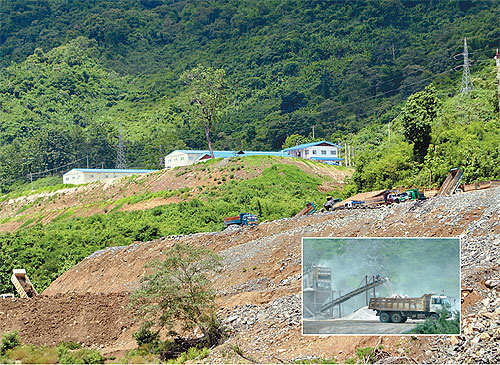 LAYING THE GROUNDWORK: Trucks and other heavy machinery are seen working at the Xayaburi Dam site in the mountains.
LAYING THE GROUNDWORK: Trucks and other heavy machinery are seen working at the Xayaburi Dam site in the mountains.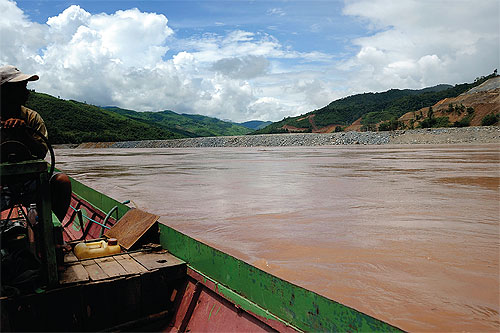 BLOCKAGE: A large gravel based dyke that is being built across a
section of the Mekong River, which locals say is obstructing the passage
of boats.
BLOCKAGE: A large gravel based dyke that is being built across a
section of the Mekong River, which locals say is obstructing the passage
of boats.







